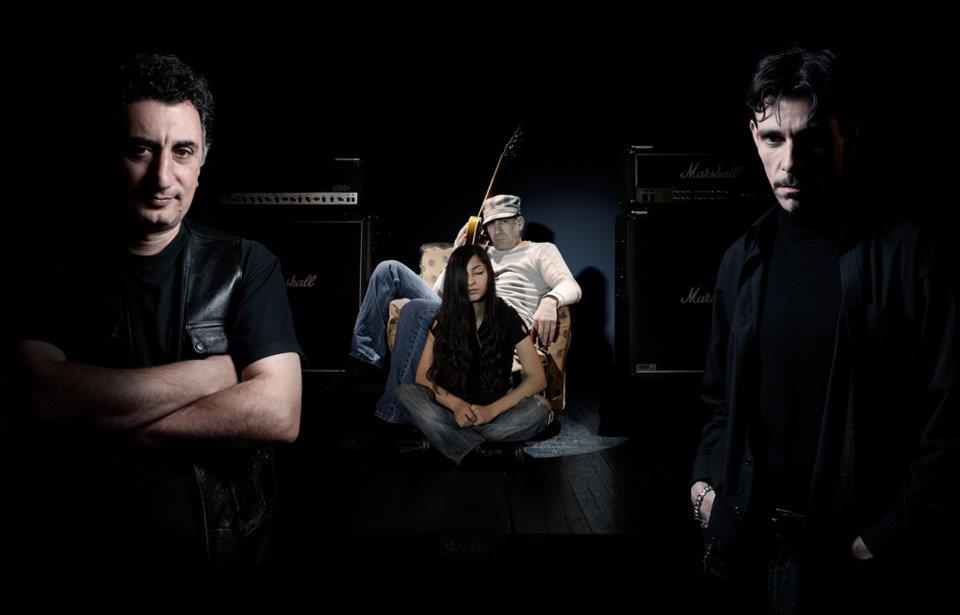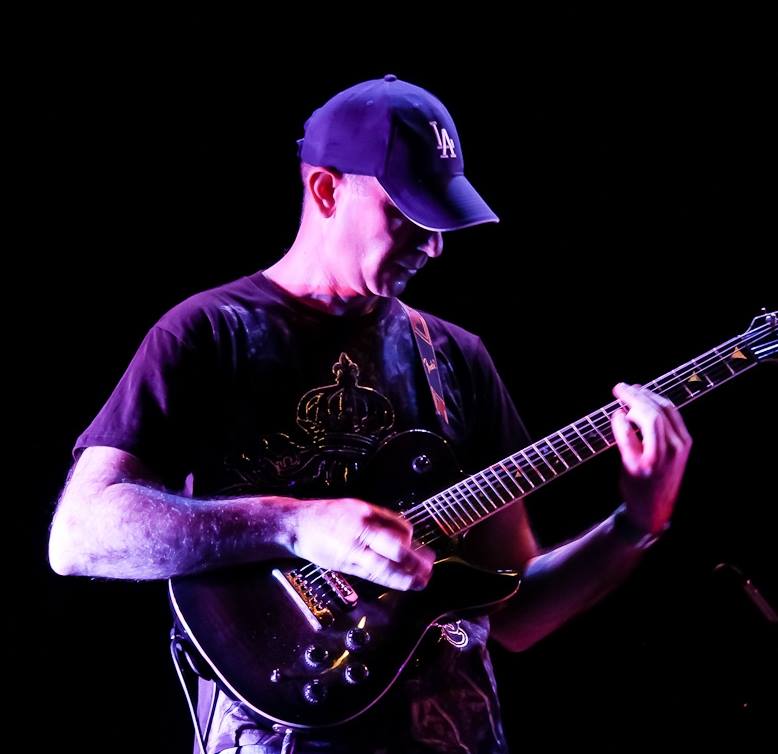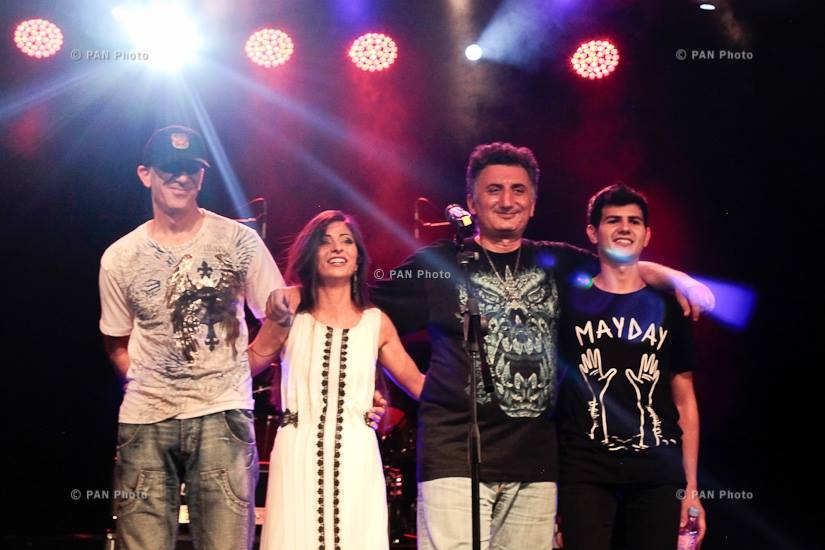
By Tatev Galstyan
I was 17 when I first saw Dogma on stage during Armenia in Rock festival. At that time, I knew some of their songs, but their performance that day completely changed my perception of Armenian rock. Dogma’s unique music and the community the band had created, made me feel like I belong, a feeling many rock enthusiasts in Armenia long for. Their performance was more than a combination of vocals and musical accompaniment. It was an expression of freedom through art.
Dogma unites Armenian folk traditions with progressive/art rock and metal, creating music with defined Armenian characteristics appreciated by music enthusiasts worldwide. This exceptional Armenian band has been discussed in several renowned music magazines, including the British Classic Rock Magazine and Femme Metal Webzine.
“The best musical Metal band this side of Mars. Amazing bass player. Brilliant vocals. Searing guitar. Thundering neutron drums. This band features instruments which are weapons of mass destruction… Oh, to be so young,” said Jethro Tull’s progressive rock legend Ian Anderson about the band.
Their performance was more than a combination of vocals and musical accompaniment. It was an expression of freedom through art.

Dogma was formed in 2008 by bassist Vardan Grigoryan and guitarist Heno Grigoryan, the former members of the Transcaucasia MDP band. Zara Gevorgyan, the band’s vocalist, and Derenik Vardumyan, the former drummer, joined them. In 2014, Derenik Vardumanyan decided to take a break and was replaced by Gor Avetisyan, who was only 15 years old at the time. After MDP broke up, Vardan started working in the field of engineering and stopped dedicating time to music, but soon realized that he felt incomplete. Eventually, he returned to the music field and invested in creating his studio, which became Dogma’s second, sometimes first home.
“I was making good money and I had a good career perspective, but it didn’t fulfill me. I wanted something more,” Vardan said.
From childhood, the band members knew that their destinies would be intertwined with music. The band’s bassist said that he became a part of the USSR’s underground rock culture with the help of his uncle.
“I remember it was one of Led Zeppelin’s songs that switched my brain,” Vardan said while playing that song on his guitar. “I came back home and wanted to learn how to play the guitar leaving the piano behind – a big tragedy at our home!” he remembered. “I didn’t know how to tune or hold the guitar correctly finding a good guitar also wasn’t easy.”
Later he met other people with the same interests who helped him learn basic chords and tune the guitar. He slowly became a part of the underground rock culture.
When I sing I completely dissolve. I come back to earth only with the last notes of the song

The band’s vocalist always knew she wanted to sing. As a teenager, she longed for something more than the records in her house could offer, something that resonated with her. She found her favorite music at a more mature age when she started working in an office as a translator, had access to the Internet and fell in love with her new musical discoveries.
“When I sing I completely dissolve. I come back to earth only with the last notes of the song,” she said. “Of course, singing is pleasure to me, but it is also work that drains you physically” the vocalist emphasized this overlooked aspect.
Describing Dogma’s music style is not easy. While the band members said that it is a fusion of metal, progressive/art rock and folk, they emphasized that the only way to understand their style is by listening to their music. While filling up forms about the band, they usually mention Tool, Kate Bush and Jethro Tull as artists to whose audience Dogma’s music might interest, but the options are endless.
Heno emphasized that recently the word rock is becoming a cliché; in contrast to the band’s name, their music is free of genre limitations. Dogma’s music resonates with Armenia’s landscapes – dusky forests, austere highlands, ice-cold rivers and windy mountains.
“When you are traveling in Syunik and are about to enter Zangezur, and you look at the mountains, what music suits the scene? Something rockish! Even if you think about traditional musical instruments, still, zurna sounds like a distorted guitar,” explained Vardan.
Nothing made sense anymore. We couldn’t make ourselves perform because it was pointless to us. How could we perform when our country had so many loses?

Many have seen Dogma on stage, but the working process of the band stays behind the curtains. Creating music is an intricate process that requires patience and commitment. In Dogma’s case, the process of writing usually revolves around the following scenario.
Heno comes to the studio to record ideas of new songs and quickly shuts down the recordings when anyone else enters the studio. Simultaneously, the band’s bassist comes up with new ideas in a separate room. After some time, Heno resentfully shows his new idea to the band members, and the process of development begins.
Zara writes the lyrics in a crowded bus on a piece of napkin or in darkness right before falling asleep because sometimes words come to her mind in the most uncomfortable and bizarre situations. Each member of this group is irreplaceable; every member is a non-standard chord, but together they harmonize.
Rock musicians in Armenia face a lot of challenges, the members claim. Financial hardships, low coverage on media, lack of professional criticism, and a force that constantly pressures them into becoming more likable and standard. Dogma is still battling these difficulties, but their music remains non-standard, and the quality of their concerts remains high. The members happily said that there are many other unique bands in Armenia with high standards for themselves. One of the band’s biggest challenges was the Artsakh war in 2020.
“Nothing made sense anymore. We couldn’t make ourselves perform because it was pointless to us. How could we perform when our country had so many loses?” Zara said, remembering the horrible days. “The present is nonexistent. The past is not definite yet. The future is questionable. This is what we feel,” she recited one of Dogma’s songs written many years before the war.
“There is certainly a sense of power and feeling of freedom in their music,” said Nane Grigoryan, one of Dogma’s fans. “I remember I’ve read on their website that their music ‘can transfer the listener from a powerful mountainous landscape to a serene apricot garden in the blazing sun'” she said. “I have been listening to this band for seven years, and that is the best way to describe them.”
After taking some needed time off, the band returned to the stage in November 2021 with a concert named Awakening. The band members seek to comfort themselves and their listeners through their music and help them awaken.

